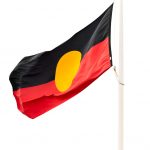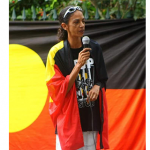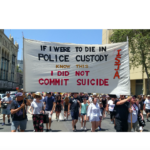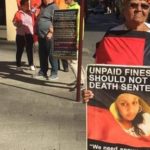Two More Indigenous People Die In New South Wales Custody

Two Indigenous people have died in custody this month, and the only reason we know about it is because a government official was questioned in Parliament.
New South Wales Correctional Services has defended its decision not to release information about the deaths to the public, because according to the organisation’s Commissioner, it’s not appropriate to “simply advise the public in the absence of any detail that we can provide and cause a lot of anger, a lot of angst and a lot of grief.”
He went on to explain that, “We didn’t and we won’t put public statements out. That is not in any way to suggest that we are not 100 percent accountable in the context.”
And there are concerns over the fact that NSW Corrective Services has no mandate to publicly report the deaths, with questions being asked about how the criminal justice system can address the issue without information.
Deaths not made public
The death of a man who was in custody at Long Bay Prison is reported to have been due to natural causes.
The man is reported to have had several medical conditions and was being treated in the prison hospital at the time of his death.
An Indigenous woman in her fifties took her own life at Silverwater Women’s Correctional Centre in Western Sydney. She was serving an 8-month sentence.
More than 30 years ago, the Royal Commission Into Indigenous Deaths in Custody made 339 recommendations for change. One of them was to remove the ‘hanging points’ in prison cells. But Correctional Services Commissioner Peter Severin says there is not enough money to do so.
It’s been reported that the deceased woman was being held in a cell with hanging points, after a self-harm risk assessment did not identify her as high risk. If inmates are identified as high risk, they are not held alone in cells with hanging points.
No money in the budget
Other prisons including Tamworth, Junee and Parklea still have ‘hanging points’ and a scheme to remove them is funded through a minor works program.
This is “a risk-based approach to modifying cells, whether it is necessary,” according to Commissioner Severin.
More than $3.5 billion has been allocated to prison capital works over the past five years, which does not cover the removal of hanging points.
Like so many other recommendations made by the Royal Commission in1991, removal of hanging points, it appears, is not a priority.
Failure to address the issue
Over the past three decades successive state, territory and federal governments have failed to take the issue of Indigenous deaths in custody seriously enough to effect real change, despite community calls to do so.
There has been incremental progress, such as Victoria decriminalising public drunkenness after the death of Yorta Yorta woman, Tanya Day, and Western Australia’s Government enacting law reform to limit the circumstances whereby individuals can be imprisoned for the non-payment of fines, after Ms Dhu died in custody over $3,600.00 worth of unpaid fines.
Last year, NSW parliament voted to hold a cross-party inquiry into how deaths in custody are investigated, after a unanimous motion acknowledged “the unacceptably high level of First Nations people in custody” in the state. But there is still a long way to go.
Both deaths will now be investigated by the coroner, but it will be some time before there are answers.
Reliance on police investigations is problematic
Currently, there is a coronial inquest underway in the Northern Territory into the death of Kumanjayi Bloomfield who died when the vehicle he was driving rolled over on the Plenty Highway near Harts Range, while trying to evade a roadside breath test in July 2019.
His death is considered a death in custody because he was attempting to escape from police when he died.
The inquiry has heard that a recent police investigation into the matter blew out to more than twice the recommended reporting timeframe. Internal police guidelines require death in custody investigations be reported to the coroner within six months.
However, police delivered their report 10 months later, and the autopsy report 9 months later, a delays which the inquest heard has caused the community a great deal of distress, anguish and suspicion that police were attempting a ‘cover up’.
Northern Territory Police have admitted that “a failure of governance” led to the blown-out reporting period and that police are reviewing a number of internal policies to streamline their processes.
Systemic racism in criminal justice system
But the simple fact of the matter is that non-Indigenous Australians are not treated in the same way, and it’s beyond time that the systemic racism in the justice system – from poor treatment by police to the harsher sentences given by courts was addressed across the board. Certainly, if the massive support of the Black Lives Matter protests held last year is any gauge, Australians are advocating for equality.
The other shame hanging over our governments is the fact that since the Royal Commission handed down its findings, which were intended to stop indigenous deaths in custody, more than 400 Indigenous deaths have occurred, and, as yet, no one has ever been held criminally responsible.
One of the obstacles to prosecution is a reticence on the part of those involved (including police or prison witnesses) to give full accounts of what happened.
Reports to Coroner
Under New South Wales law all deaths in police or corrective services custody must be reported to the Coroner as outlined in the NSW Coroner’s Act 2009 and the Crimes Administration of Sentences Act 1999.
New South Wales Police then conduct an investigation on behalf of the State Coroner in accordance with the obligations set out in the NSW Police Force Critical Incident Guiding Principles. If the coroner is satisfied with the brief, then the inquiry can begin.
But there have long been calls for an independent body to investigate rather than police, over concerns that police investigations are not able to be completely impartial. This too was a recommendation of the Royal Commission into Indigenous Deaths in Custody which has not been implemented.







